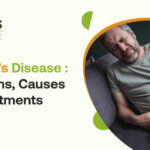
Erectile Dysfunction (ED) in Men
What Is Erectile Dysfunction?
Erectile dysfunction or ED (also known as impotence) is when a man cannot achieve or sustain an erection for sexual intercourse. This can be:
- a total inability
- inconsistent ability or
- a tendency to sustain only brief erections.
Over 18 million adult men* in the United States have erectile dysfunction. In fact, at least 50 percent of men over the age of 50 experience some loss of function. Despite being a common male condition, it is not normal, no matter how old you are.
Only 10 percent of men seek treatment and many (50 percent) discontinue treatment once they start it because they are too embarrassed to discuss their sexual health issues with a doctor. There is no need to suffer in silence.
We develop treatment plans customized for your needs to help you get your sexual function back.
Causes of ED
An erection occurs when blood flows into the corpora cavernosa (erection bodies) and gets trapped there. If the blood has problems getting to or staying in those erection bodies, you may have erectile dysfunction.
There are many potential causes for erectile dysfunction, such as these conditions/circumstances:
- Vascular conditions:
- High blood pressure
- Elevated cholesterol
- Cardiovascular disease
- Diabetes
- Trauma:
- Spinal cord injury
- Pelvis injury
- Neurologic disease:
- Stroke
- Parkinson’s disease
- Alzheimer’s disease
- Radiation to the pelvis for cancer
- Endocrine:
- Hypogonadism (low testosterone)
- Hyperprolactinemia (high prolactin levels)
- Pelvis surgery:
- Radical prostatectomy (a surgical procedure for the partial or complete removal of the prostate)
- Surgeries for rectal cancer or bladder cancer
- Medication side effects:
- Antidepressants
- Antihypertensives (high blood pressure medicine)
- Antiandrogens (testosterone blockers)
- Antiarrhythmics (heart rhythm medicine)
- Alcohol
- Cigarette smoking
- Cocaine and marijuana
Diabetes & ED
Half of men with diabetes will experience ED within 10 years of their diagnosis. High blood sugar levels can damage the nerves that control sexual stimulation. They can also damage the blood vessels needed to provide adequate blood flow to the penis in order to have and maintain an erection.
While oral medications are a common first step for therapy, they only tend to work in about 50 percent of men with diabetes. Diabetic men are more likely to move on to other treatment options, such as the pump, penile injection therapy, and penile implants. However, the penile implant has the highest satisfaction rate of all treatment options.
ED & Heart Disease
Erectile dysfunction can be a warning sign of current or future heart disease sometimes. In fact, ED can precede coronary artery disease in almost 70 percent of cases.
When you have heart disease, or coronary artery disease (blocked blood vessels), it will affect the tiny arteries in your penis sooner. Many times, we will refer you to a cardiologist to determine if you have cardiovascular disease that is causing your ED.
Improving your heart health can help lower your risk for ED. You can start by:
- increasing physical activity,
- quitting tobacco products,
- losing weight, and
- consuming a healthy, well-balanced diet.
Prostate Cancer & ED
Erectile dysfunction is a potential complication following prostate cancer treatments. The nerves that control an erection lie very close to the prostate and may be injured during treatment. However, some men may regain their previous level of erectile function with nerve-sparing procedures. But it may take up to a year while some men may never recover their ability to have a natural erection.
Radiation for prostate cancer can cause ED symptoms to appear gradually, usually within two to three years after treatment. If you are experiencing ED after undergoing prostate cancer treatment, you can get a healthy sex life back. We can help you choose the best treatment options for you.






